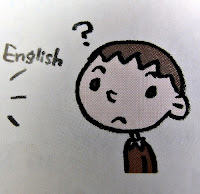mardi 22 février 2011
How to use the present perfect tenses in English
When do you use the Past Simple ("I did") and the Present Perfect ("I have done")?The tense you choose depends on how you consider the event. Is it finished, or is there still a connection to the present?
If you use the Past Simple ("I did"), you consider the event or events as finished and in the past. This tense is often used with a time reference: last year, last week, in 1991, this morning (if it's now the afternoon) and so on.
With the Present Perfect ("I have done"), there is a connection to the present.
For example, "I have lived here for five years." (I still live here.)
Uses of the Present Perfect
When the past affects the present
"I've lost my wallet."This means that you have lost your wallet (sometime in the past, but we don't know when), but what is really important is that you don't have it now, at the time of speaking.
If instead, you say "I lost my wallet", people understand that you lost it, but not that it affects the present. They expect you to tell them about the time that you lost the wallet.
We use the Present Perfect tense to show that something has a result or a connection to now. This means that it's used to give news.
"The Euro slips!"(headline)
"The Euro has slipped against the pound again."(news report)
"My sister has had a baby." (announcing news)
Experiences
Your experiences make you the person you are now. We don't use dates and times to give information on what makes you this person.
"I've been to New Zealand." (I know something about New Zealand.)
We often ask questions about people's experiences with ever. For example, "Have you ever been white-water rafting?"
States or activities that started in the past, which have continued up to now and will probably continue into the future.
"I have worked here for five years."
"I have lived here since 1994."
Use since to give the date that an activity or state started and use for to give the period of time the activity or state has lasted.
Recent past
"Have you finished yet?"
"I've already written the report." (Here it is.)
In these type of examples, we often use yet, already still, just and recently.
Note: American English uses the Past Simple instead of the Present Perfect in these examples. For instance, "Did you eat yet?"
Using both tenses in a conversation
"Have you travelled much?"
"Yes, I've been to the USA."
"Oh really? When did you go?"
The first question and the reply concern a person's experience, so they use the Present Perfect. But the second question asks for more information about the experience. Because it refers to a past time (when the person went to the USA), the Past Simple is used.
The conversation could continue:
"Oh really? When did you go?"
"Two years ago. I visited a friend in California, but I only stayed a week."
"Did you like it?"
"Yes, it was a fantastic trip."
How to use the Present Perfect Continuous.
Temporary situations
Like the Present Continuous and Past Continuous, the Present Perfect Continuous is used to talk about activities or states that are temporary, rather than permanent.
Compare:
"I have been the Marketing Manager for five years." (This is my job.)
"I've been working on a new customer database." (This is a temporary project.)
Unfinished situations
"I've been writing letters all morning." (I still haven't finished them.)
"This morning I've written three letters." (They are all finished.)
Repeated and continuous actions
"No wonder you're not hungry. You've been eating sweets for the last hour." (One sweet after another.)
Inscription à :
Publier les commentaires (Atom)


Aucun commentaire:
Enregistrer un commentaire